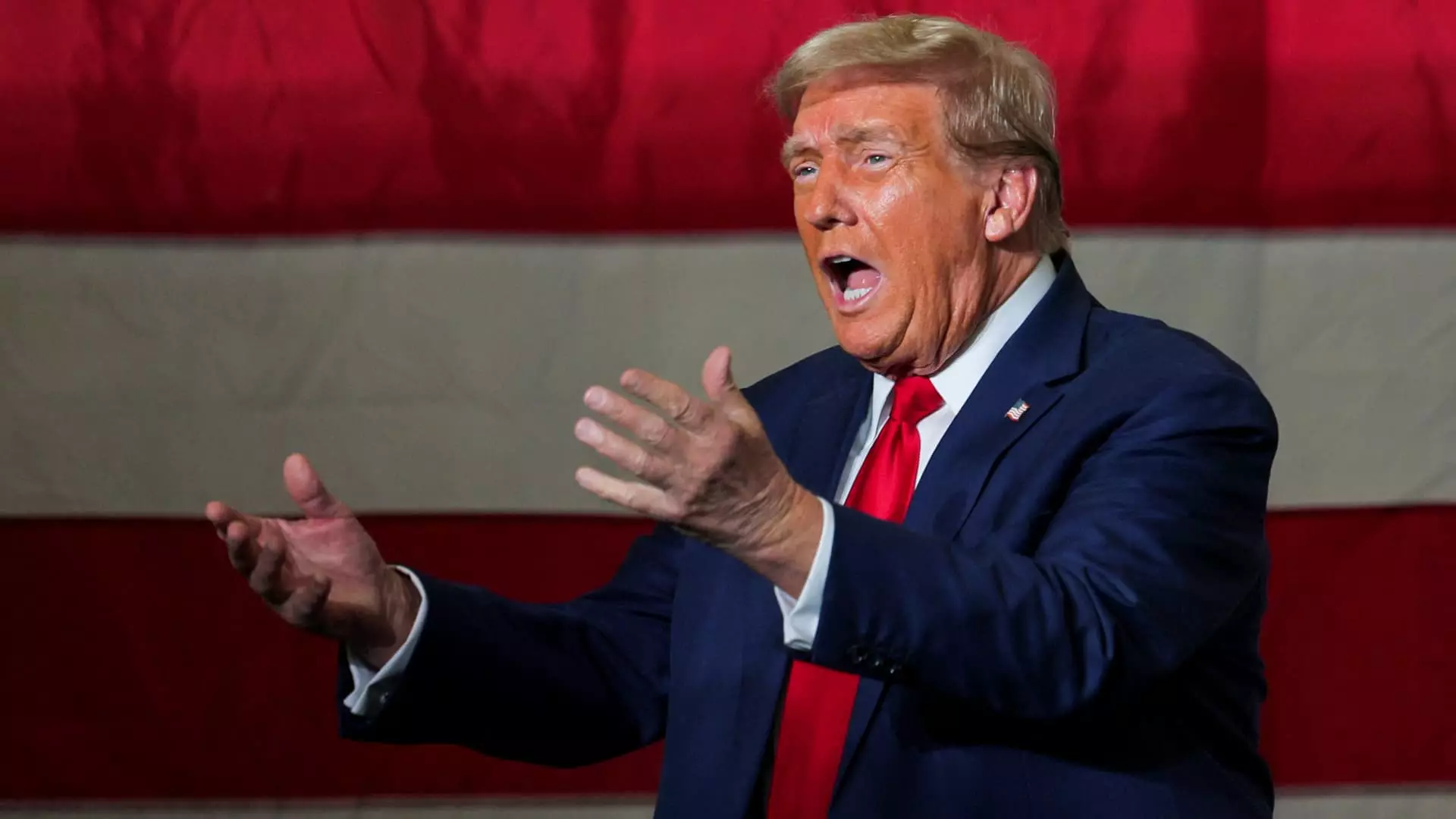The criminal proceedings against former President Donald Trump have reached a pivotal moment with the recent unsealing of a heavily redacted 165-page motion authored by Special Counsel Jack Smith. This development sheds light on the prosecution’s arguments regarding Trump’s alleged attempts to overturn the results of the 2020 presidential election. The revelations within this filing not only deepen our understanding of the legal strategies at play but also pose significant implications for the upcoming 2024 election, where Trump is set to face Vice President Kamala Harris.
The Framework of Claims and Immunity
At the core of the Special Counsel’s argument is the assertion that Trump’s actions cannot be shielded by the principle of presidential immunity. The unsealed document contends that while Trump held the office of President during the purported conspiracies, his actions were primarily driven by personal motivations rather than official duties. Smith’s office articulates that working alongside private collaborators, Trump sought to leverage deceit and fraud in a manner that obstructed the electoral process, a role for which he, as President, had no legitimate script.
This distinction is crucial. Trump’s defense hinges on the idea that his maneuvers during the 2020 election turmoil were part and parcel of executing his presidential role. However, the prosecution counters that his behavior constituted private misconduct, independent from any authorized governmental activities. This legal framing will be pivotal as the case progresses and offers a clear lens through which to assess Trump’s culpability.
The prosecution’s evidence landscape expands dramatically when detailing Trump’s actions in the wake of the 2020 election. It highlights a concerted effort by Trump’s associates to disrupt the vote-counting processes, particularly focusing on Michigan. This narrative accentuates Trump’s campaign’s disarray and the lengths its operatives resorted to stir confusion. One particularly striking allegation involves a campaign representative suggesting the need to “find a reason” to dispute favorable voting trends for Biden—an act that, if proven, paints a bleak picture of deliberate attempts to undermine democratic integrity.
Additionally, the document implies much more than mere misunderstanding of election procedures; it insinuates a calculated strategy designed to foster unrest. The chilling phrase “Make them riot” attributed to a campaign operative illustrates a blatant disregard for public order and democratic norms, thus complicating Trump’s defense perspective even further.
The motion also sheds light on the dynamics within Trump’s inner circle, particularly the efforts of then-Vice President Mike Pence to steer him toward accepting the election’s results. This interaction reveals significant tensions and intra-party divisions, showcasing Pence’s multiple attempts to navigate Trump towards a more conciliatory acceptance of electoral loss. These exchanges, ranging from Pence’s suggestions to “take a bow” if options were exhausted, underline a striking contrast between personal loyalty to Trump and principled adherence to democratic processes.
Importantly, these accounts reflect Pence’s struggle in harmonizing his loyalty to Trump with his responsibilities as an elected official tasked with upholding democratic principles. This inner conflict poses further questions about the influence of political affiliations during crises and the lengths to which allies will go to preserve personal and political bonds, even amidst potentially illegal actions.
Potential Impact on 2024 Election Dynamics
As the legal battle advances, its ramifications for the 2024 presidential election cannot be understated. Should Trump secure the Republican nomination while simultaneously grappling with these serious accusations, the campaign ecology will be deeply affected. The unique intersection of ongoing criminal proceedings and electoral politics raises concerns about the credibility and integrity of both the election process and the judiciary.
Moreover, if Trump were to win the presidency again, he would gain the authority to intervene in the Department of Justice’s operations, including dismissing the ongoing case against him. This reality could create a paradoxical scenario where an elected leader faces the very institutions designed to uphold justice, fostering a complex dialogue about power, accountability, and the rule of law.
The unsealed motion from the Special Counsel presents critical insights into the intricacies of Trump’s legal predicament arising from his post-election conduct. The evidence revealed not only challenges Trump’s assertions of immunity but also illustrates the potential chaos that ensued among his closest allies during this tumultuous period. As the case progresses and approaches the 2024 election, the interplay of legal considerations and political ambitions will continue to resonate across the American political landscape. With significant implications for both Trump’s legacy and the future of electoral integrity, this unfolding saga serves as a pivotal chapter in the ongoing narrative of contemporary American democracy.


Leave a Reply